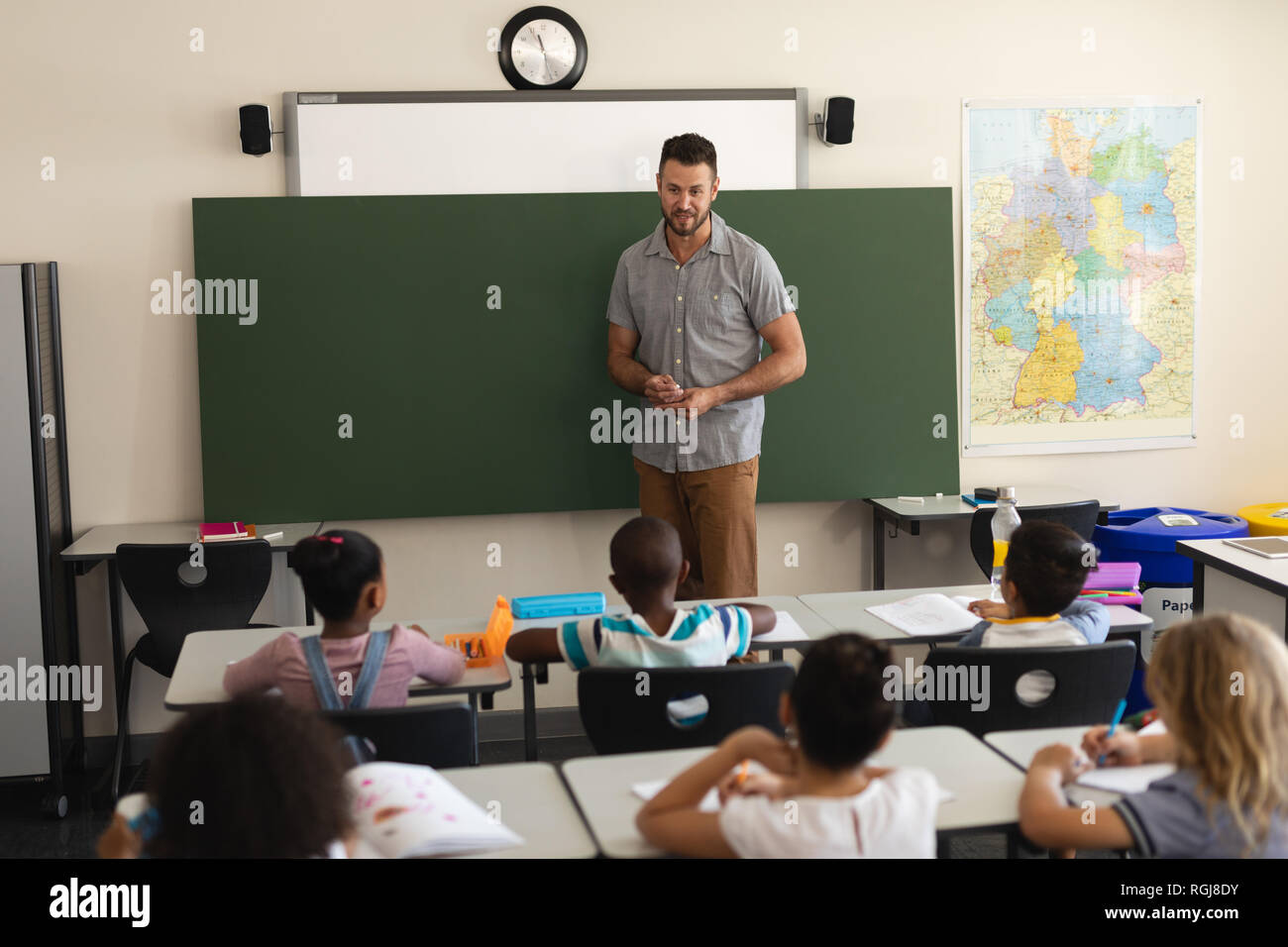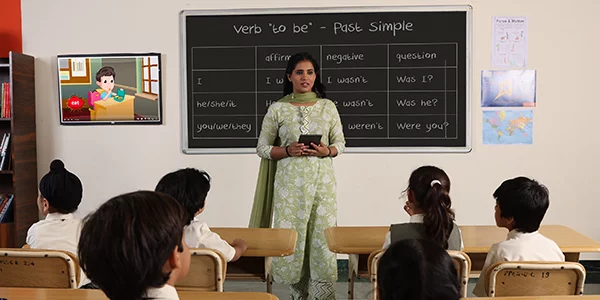Boost Your Child’s Confidence with Primary Science Tuition Singapore
Boost Your Child’s Confidence with Primary Science Tuition Singapore
Blog Article
Discovering the Various Mentor Techniques in Main Science Education And Learning Today
Inquiry-based knowing, hands-on experiments, and the assimilation of innovation are redefining how instructors engage young minds. In addition, collective methods and distinguished guideline are being utilized to provide to the diverse needs of pupils, enhancing both engagement and understanding.
Inquiry-Based Understanding
Inquiry-Based Knowing (IBL) is an instructional approach that urges students to check out clinical ideas with wondering about, investigation, and hands-on trial and error. This technique stresses the role of trainees as active individuals in their discovering, promoting crucial thinking and problem-solving skills. By involving with real-world questions, students come to be motivated and curious, which improves their understanding of clinical concepts.
In IBL, teachers function as facilitators, directing trainees as they browse their questions instead of providing information straight. This student-centered technique permits for distinction, suiting various learning designs and speeds. Pupils develop skills in formulating hypotheses, designing experiments, and assessing information, which are important for clinical literacy.
Additionally, IBL promotes collaboration among pupils, encouraging them to share findings and concepts. This cumulative questions advertises social skills and a feeling of community within the classroom. The process of query encourages resilience, as pupils discover to accept failure as a tipping rock towards understanding.
Hands-On Experiments
Hands-on experiments are a vital part of efficient science education and learning, enhancing the principles of inquiry-based knowing. These experiments allow students to engage straight with scientific concepts, promoting a much deeper understanding via experiential knowing. By manipulating materials and observing outcomes, young students can understand abstract concepts in concrete methods.
Such activities promote crucial reasoning and analytical abilities, as pupils hypothesize end results, conduct experiments, and evaluate results. This process motivates them to ask questions, fine-tune their understanding, and create a clinical attitude. Hands-on experiments can be tailored to varied discovering styles, making certain that all students have the opportunity to involve meaningfully with the web content.
Additionally, hands-on experiments frequently urge partnership amongst peers, advertising team effort and interaction abilities. Operating in teams allows trainees to share ideas, discuss searchings for, and gain from one another, which enhances their total educational experience.
Incorporating hands-on experiments into the key scientific research curriculum not only improves the discovering environment yet also grows a long-lasting rate of interest in scientific research. By proactively joining their education and learning, pupils are more most likely to develop an enthusiasm for scientific query that expands past the classroom.

Technology Assimilation
Integrating technology into main scientific research education and learning has actually come to be increasingly important in fostering pupil interaction and improving discovering end results. The usage of electronic tools, such as interactive simulations, virtual laboratories, and instructional software, gives pupils with possibilities to discover scientific concepts in ingenious means. These sources promote a deeper understanding of intricate subjects by allowing learners to visualize and control variables that would be impractical in a conventional class setup.
Additionally, modern technology integration urges individualized discovering experiences. Trainees can progress at their very own rate, revisiting challenging ideas with multimedia sources, which deal with various knowing designs. This versatility not only sustains individual growth but additionally cultivates a sense of autonomy in learners.
Additionally, modern technology functions as a bridge to real-world science, attaching students with existing research study click to find out more and specialist payments. Accessibility to scientific journals and on-line data sources widens trainees' point of views on scientific questions and fosters important assuming skills.
Collaborative Understanding
Collective discovering plays an important role in main scientific research education by promoting team effort and interaction abilities amongst students. This method motivates students to function together, share understanding, and take part in problem-solving, which improves their understanding of clinical principles. By participating in team activities, students find out to verbalize their ideas, listen to varied point of views, and negotiate services, all of which are vital abilities in both academic and real-world contexts.

Research study indicates that joint knowing can lead to raised motivation and involvement in science topics, as students discover enjoyment in common experiences (primary science tuition Singapore). Furthermore, this approach prepares trainees for future joint ventures, outfitting them with the skills required for effective team effort in college and specialist environments. Eventually, accepting joint knowing in key science education and learning can considerably enhance the understanding experience and promote a much deeper understanding of scientific query
Differentiated Instruction

Distinguished instruction can materialize in different methods, such as varying the material, procedures, or products of discovering. For example, instructors may make use description of tiered tasks that give differing degrees of complexity, allowing trainees to work at their respective readiness degrees. Furthermore, versatile grouping strategies can facilitate cooperation amongst trainees with different abilities, cultivating peer understanding.
Evaluation plays a critical role in this strategy, as it notifies instruction and aids instructors comprehend each student's unique demands. Formative analyses, such as tests and observations, can guide instructors in adjusting their approaches to improve learning results. primary science tuition Singapore. Ultimately, by applying distinguished guideline in main scientific research education and learning, teachers can cultivate a much more reliable and equitable knowing environment, equipping all pupils to reach their full possibility in recognizing scientific phenomena
Verdict
In summary, the diverse mentor methods in key science education, consisting of inquiry-based learning, hands-on experiments, technology assimilation, collaborative discovering, and set apart instruction, collectively add to an extra effective discovering setting. These approaches advertise important reasoning, analytic skills, and a deeper comprehension of scientific ideas. By applying these strategies, educators can create encouraging and interesting class that resolve the varied demands of students, ultimately fostering a lifelong interest in science and enhancing academic achievement.
Inquiry-Based Knowing (IBL) is a pedagogical approach that encourages students to explore clinical principles via wondering about, examination, and hands-on trial and error.Joint understanding plays an essential function in main scientific research education by promoting teamwork and interaction abilities among trainees.Study shows that collaborative discovering can lead to boosted motivation and involvement in scientific research topics, as trainees find enjoyment in common experiences.In cultivating an inclusive knowing environment, set apart guideline arises as an essential strategy to suit the diverse needs and abilities of pupils in main scientific research education and learning. go now Ultimately, by implementing differentiated guideline in main scientific research education, instructors can grow a more reliable and equitable discovering atmosphere, empowering all trainees to reach their complete potential in recognizing scientific sensations.
Report this page